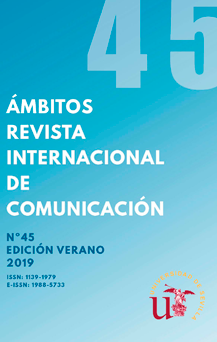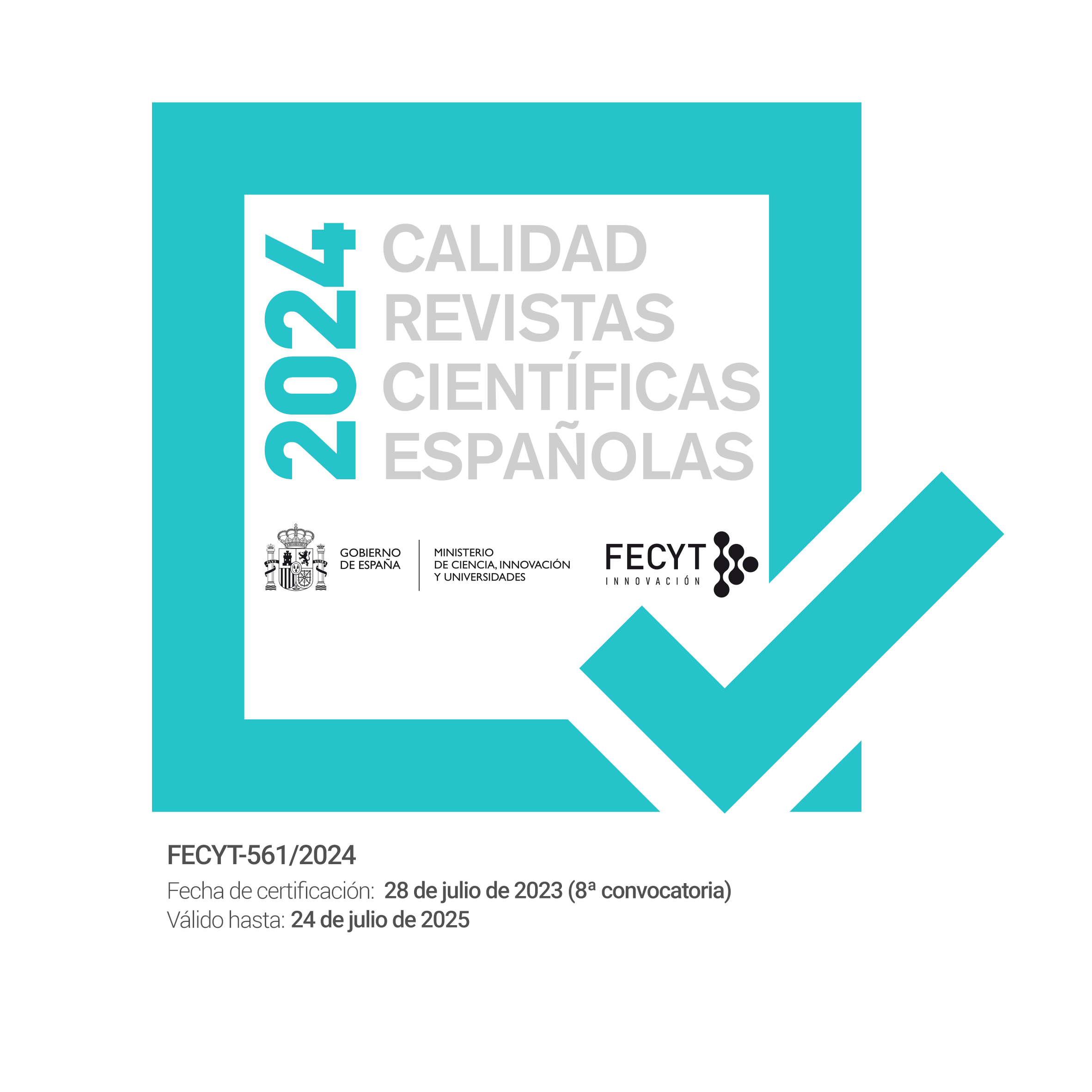On the problem of objectivity: between rationality, representation and ideology
DOI:
https://doi.org/10.12795/Ambitos.2019.i45.05Keywords:
Objectivity, ideology, rationality, representation, philosophy of communicationAbstract
Despite all the contemporary discussion about the relativity of the points of view, the value of "objectivity" seems still quite present mainly in the narrative of the media about itself. In this article, we will try to demonstrate how this notion of "objectivity" can be reinterpreted, in the limit, as an ideological expression. For this, we will focus on the notion of "objectivity" problematized by the Brazilian philosopher Marilena Chaui. We will make a journey based on specific writings of the extensive work of the philosopher, writings that were revised and improved in different texts in the last years. Our path will present, at first, an overfly by the definition made by Chaui about the term "ideology", going to the theme of its relationship with the idea of "objectivity", especially in regard to the role of the "objectivity" in the construction of the "ideology". Such concepts are quite opportune in the reflection on the new arrangements of public sphere after the explosion of digital communications. Because of this, we conclude with a brief discussion about the actual and complex problem of the post-truth and "fake news". We assume here the ongoing character of our analysis, beyond the option for the definition of this specific cut as a way to present one within the innumerable possibilities of discussion of the controversial issue of objectivity.
Downloads
Metrics
References
Chaui, M. (2014). A ideologia da competência. In: A ideologia da competência. Belo Horizonte: Autêntica / São Paulo: Fundação Perseu Abramo.
Chaui, M. (2013). Crítica e ideologia. In: Manifestações ideológicas do autoritarismo brasileiro. Belo Horizonte: Autêntica / São Paulo: Fundação Perseu Abramo.
Chaui, M. (1981). Cultura e democracia. São Paulo: Moderna.
Chaui, M. (1989). Cultura e democracia. São Paulo: Cortez.
Chaui, M. (1995). O que é ideologia. São Paulo: Brasiliense.
D'Allonnes, M. R. (2018). La faiblesse du vrai: ce que la post-vérité fait à notre monde commun. Paris: Seuil.
D'Ancona, M. (2017). Post-vérité: guide de survie à l'ère des fake news. Paris: Plein Jour.
Ferraris, M. (2019). Postvérité et autres énigmes. Traduit de l'italien par Michel Orcel. Paris: PUF.
Horkheimer, M. (2002). Notes on science and the crisis [1932]. In: Horkheimer, M. Critical Theory: selected essays. Translated by Matthew J. O'Connell and others New York: The Continuum Publishing Company.
Horkheimer, M. (1992). Traditionelle und kritische Theorie: Fünf Aufsätze [1937]. Berlin: Fischer Taschenbuch.
Huyghes, F.-B. (2018). Fake news: la grande peur. Versailles: VA Éditions.
Lefort, C. (1979). As formas da história: ensaios de antropologia política. São Paulo: Brasiliense.
Lyotard, J.-F. (1979). La Condition postmoderne. Paris: Les Éditions de Minuit.
Marx, K.; Engels, F. (1998). The German Ideology [1846]. New York: Prometheus Books.
Vattimo, G. (2011). La societá trasparente [1989]. Milano: Garzanti.
Venturini, T. (2018). Sur l'étude des sujets populaires ou les confessions d'un spécialiste des fausses nouvelles. In: Sauvageau, F.; Thibault, S.; Trudel, P. Les fausses nouvelles: nouveaux visages, nouveaux défis. Comment déterminer la valeur de l'information dans les sociétés démocratiques? Québec: Presses de l'Université Laval.
Downloads
Published
How to Cite
Issue
Section
License
Ámbitos. Revista Internacional de Comunicación is an open access journal, which means that all content is freely available at no charge to the user or their institution. Users may read, download, copy, distribute, distribute, print, search or link to the full text of articles, or use them for any other lawful purpose, without seeking prior permission from the publisher or author. This definition of open access is in accordance with the Budapest Open Access Initiative (BOAI).

Unless otherwise noted, all content in the electronic edition is distributed under a "Creative Commons Attribution-NonCommercial-ShareAlike 4.0 International License". You can consult the informative version and legal text of the licence here. This should be expressly stated in this way where necessary.
In case of acceptance of the manuscript, the authors cede the rights of the work for its publication to Ámbitos. Revista Internacional de Comunicación under the Attribution-NonCommercial-ShareAlike 4.0 International license contract (CC BY-NC-SA 4.0). The authors retain copyright and third parties are authorised to copy, distribute and make use of the work, provided they comply with the terms and conditions set out in the licence
- Cite the authorship and the original source of publication (journal, publisher and URL of the work).
- Do not use them for commercial purposes.
- If you remix, transform or create from the material, you must release your contributions under the same license as the original.
More information can be found at https://creativecommons.org/licenses/by-nc-sa/4.0/deed.es
- Abstract 236
- PDF 162


















